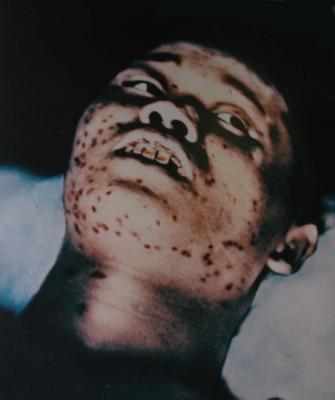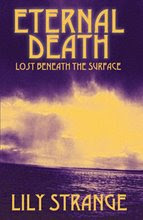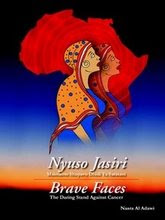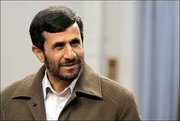
Wednesday, August 13, 2008
Saturday, August 09, 2008
Wednesday, August 06, 2008
It's Hiroshima day -- don't look away

By Marianna Torgovnick August 6, 2005
AMERICANS WILL be reminded today of the 60th anniversary of the dropping of the atomic bomb on Hiroshima.
Most likely, we will miss once again the true impact of this event,
not just for the Japanese who experienced it,
but also on us and on how we now live.
It's not, of course, that we don't know that Americans flew the planes that killed at least 60,000 Japanese, most of them civilians, in Hiroshima, and,
three days later, 40,000 more in Nagasaki (figures from the Avalon Project at Yale law School). It's not that Americans don't know that the United States remains the only nation ever to have used atomic weapons against civilian populations.
It's that the events, unlike D-Day, say, or the liberation of the concentration camps, place Americans in ambiguous, unpleasant, or even guilty roles.
It seems natural that, as a culture, we prefer to look away. It seems natural that we prefer to emphasize events that reflect how we like to think of ourselves, that show a face we like to show to the world.
So don't expect to see today marked by daylong ceremonies like June 6, the 60th anniversary of D-Day.
Don't expect to see President Bush fly to Hiroshima to make a policy speech there in the way that he and other presidents, most notably Ronald Reagan, have flown to Normandy.
Don't expect to see the crew members of the Enola Gay smiling or saluting into the camera, their faces marked, perhaps, by the weightiness of their deeds.
The anniversary is likely to be mentioned, but quickly, almost as a kind of stealth event, under the radar screen and under the claim -- always controversial and often inflated -- that the bombings prevented an invasion and saved, and were designed to save, millions of American and Japanese lives.
http://imnutsincapsbushfires.blogspot.com/2005/07/nuclear-button.html
Hiroshima mon amour
Wednesday, July 30, 2008
the WEST is shit scared of INDIA and CHINA

OUTSOURCE to INDIA and CHINA
NOKIA has
There is no morality in Business and WAR
USA is concerned
they are loosing jobs to INDIA and CHINA
so they raise the bogey of HUMAN RIGHTS Violations
more
INDIA does not have a strong Regulatory Body like the USFDA
so the Drug MNCs are outsouring CLINICAL TRIALS to INDIA
more
Monday, July 28, 2008
History of Nations
History of Nations. This is a site which has a history of every nation on Earth. At least, every nation which is currently independent. (There is nothing on Welsh history for example.) This is an informative and easy to use site which I am sure I will be visitng from time to time. From the site: Welcome to History of Nations! This site has a history of every nation in the world. Each country if covered by a brief essay which gives the highlights of each nation's history.
The national histories at this site are divided into six regions.
These are: Africa - This is for the nations of the world which are located in Africa. This includes some of the island nations which lie off of the coast of Africa. It also includes Egypt which also has territory in Asia.
Asia - This is for the nations of the world which are located in Asia. It includes Taiwan evn though Tawain is technically not independent of China.
Europe - This is for the nations of the world located in Europe. It includes Russia which is mostly in Asia but is considered a European nation. It also includes Turkey which is also mostly located in Asia.
North America - This is for the nations of the world located in North America. This includes most of Central America and the island nations of the Caribbean.
Oceania - This is for the nations of the world located in the Pacific which are not considered part of Asia. This includes Australia and New Zealand.
South America - This is for the nations of the world located in South America.
Posted by M at 4:19 AM
Sunday, July 27, 2008
1000 posts done
I have completed 1000 posts
it is time for introspection
whn i started blogging
(after being coached by Keshi)
I was scretive about my identity
but now I dont give a damn
I even did a shocking HNT
I had bitter enemies who turned into best friends
I had lovers plenty who turned into Saby-haters
i will not live forever
my life is now an open book
I received many threats from annony mouse callers
my password was hacked and I lost many blogs
I have been cloned
I have been cussd
All in all, it has been funn
- Saby/ Jim/ Julia/ Rani
on Death

Today, a doctor reflects on death and the machinery of sustaining life. The University of Houston's College of Engineering presents this series about the machines that make our civilization run, and the people whose ingenuity created them.
Sherwin Nuland's book, How We Die, sat on my desk for a year. Now I've finally read it and it was a jolt. Nuland takes on the most forbidden topic of all. Society lets us talk about politics and sex as long as we're careful. But talk of death remains taboo.
Nuland is a surgeon and medical historian. His book deals with a primary dilemma. To be a doctor is to fight death. Yet death always wins in the end. Doctors, armed with spectacular new technologies, engage in a combat they cannot ultimately win. It is a situation that becomes more paradoxical all the time.
Nuland begins by explaining death itself. And it isn't pretty. Death is invariably caused by a lack of oxygen brought on by a hundred different scenarios of system failure. It is seldom a matter of passing gently over the Great Divide. In a harrowing sequence of chapters he explains how our bodies fail in heart disease, cancer, AIDS, Alzheimer's disease, and more.
For those of us old enough to know our time's limited, Nuland's book is frightening at first. But it grows reassuring as he demystifies death. He takes it out of that place where things go bump in the night. He puts it where it can be seen and understood.
He also deals with another seldom-discussed aspect of death. It is that the old usually reach a point where they accept it.
Nuland quotes Jefferson who, at 71, wrote to John Adams, then 78.
Our machines have been running seventy or eighty years and we must expect ... here a pivot, there a wheel, now a pinion, next a spring will be giving way; ...
There is a ripeness of time for death ... when it is reasonable we should drop off and make room for another growth.
But Nuland's main concern is with doctors and their machines, their compulsion to win the unwinable fight with death, their frequent inability to talk candidly with patients. He tells of the reflex need to fight for a patient's life long after there's any profit in it for the patient. He tells how he cheated his own brother of the chance to deal with his death by cancer. He offered empty hope instead of joining him in grieving the inevitable end.
In the poignant apogee of this remarkable book, Nuland quotes the hopeless words doctors tell each other when they fail to level with a patient: "I could not take away his hope." Then he adds,
Unless [we're] aware [we're] dying and ... know the conditions of our death, we [can't] share any sort of final consummation with those who love us. Without this consummation, no matter their presence at the hour of passing, we will remain unattended and isolated.
Others have certainly raised questions about the technologies of preserving life. But Nuland, coming from the very center of those technologies, tells us what every technologist in every field should understand. It is that we cannot let the objective purpose of our machines become ends in themselves. The true purpose of any machine can only be shaped by the people it is meant to serve.
I'm John Lienhard, at the University of Houston, where we're interested in the way inventive minds work.
Nuland, S., How We Die: Reflections on Life's Final Chapter. New York: Alfred A. Knopf, 1994.
Chapter 1 Summary
In Chapter 1, "A Strangled Heart," Dr. Nuland relates his personal experience of an individual he chooses to call James McCarty. As noted in the Author's Note before Chapter 1, all but one name was changed in the stories the author will share. Dr. Nuland was in his third year of medical school and working an evening shift at a university hospital. Mr. McCarty had been admitted to the hospital after he experienced pressure in his chest and left side. James McCarty was the picture of an overweight workaholic who gave every indication of enjoying the good life in excess. He was admitted after experiencing severe pains and pressure in his chest and left side. His condition was evaluated as "recovering" and he was moved to a room for observation. Medical student Nuland.....
Read the rest of this Literature Guide with our How We Die, Reflections on Life's Final Chapter Access Pass.
more chapters here
Saturday, July 26, 2008
Rise India - We shall not, we shall not be moved


Next day, Bangalore (the IT capital) was bombed - low intensity fire crackers
Then Ahmedadbad - higher intensity
Earlier it was Jaipur (the tourist capital) - cycle bombs
but of all these Mumbai had faced the worst
India and Indians believe in destiny
Life goes on as usual
NO FEAR, NO PANIC
We will get there
no matter what they try
We are one
hindus and Muslims and Christians and Sikhs
Friday, July 25, 2008
what is Love?
Thursday, July 24, 2008



Now America will elect their President on November 4, 2008
u have a choice:
Gen Mc Cain, who wants a fight to the finish in IRAQ
he dont count the body bags
and u have Barrack Obama
who wants a political settlement
The United States presidential election of 2008, scheduled for Tuesday, November 4, 2008, will be the 56th consecutive quadrennial United States presidential election and will select the President of the United States and Vice President of the United States. The two major parties' candidates have not been officially chosen, but their presumptive nominees are John McCain, the senior United States Senator from Arizona, for the Republican Party and Barack Obama, the junior United States Senator from Illinois, for the Democratic Party. The 2008 election is particularly notable because it is the first time in US history that two sitting senators will run against each other for president[1] and because it will be the first time an African American will be a major party presidential nominee.





































